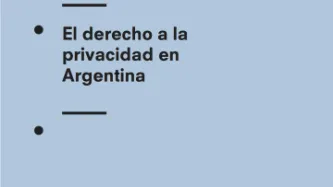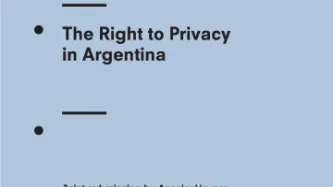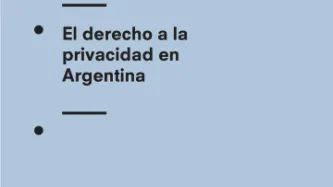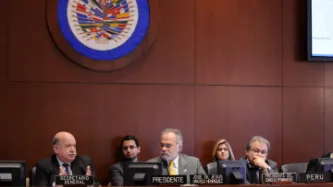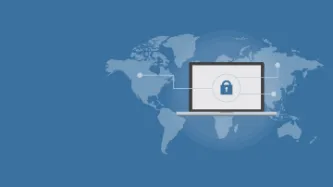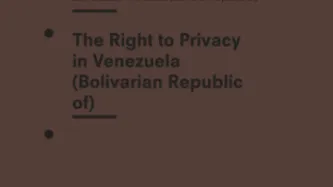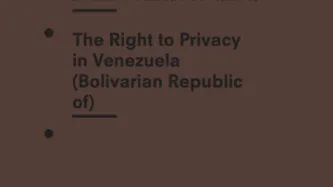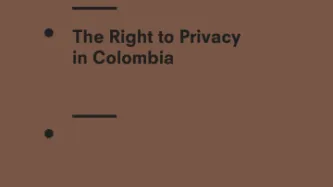Search
Content type: Examples
Taking advantage of the pandemic to close US borders, the Trump administration is also spreading coronavirus infection by deporting detainees to receiving countries such as Guatemala, where 20% of infections are deportees. Guatemala has only two hospitals and a scattering of smaller regional medical facilities to serve its population of 18 million people. As of April 2020, 5,000 Guatemalans were being held in detention in the US, and every week the Department of Homeland Security was sending…
Content type: Examples
The global pandemic that has been declared by COVID-19 is already affecting countries of Latin America and the Caribbean. Recognizing the seriousness of this health crisis and the legal possibility for governments to take exceptional measures to control the pandemic, it is essential to remember that these must be carried out in strict accordance with human rights standards.
Signed by AlSur, a consortium of 11 civil society organizations and academia from various Latin American and Caribbean…
Content type: Examples
In Colombia, Peru, and Panama, quarantine regulations assign men and women different days to go out. For transgender people, these gender-based restrictions mean discrimination and violence for law enforcement and others, leading to numerous complaints. In Bogota, where law enforcement has been instructed not to demand ID to prove gender and trans people are allowed to choose their day, one trans woman was stabbed by a man who said she was out on the wrong day, and another was blocked from…
Content type: Examples
In Haiti, the National Identification Office has been extremely crowded, despite the government requirement to avoid gatherings of more than 10 people. The cards, which include a photo, name, date of birth, and registry number, are required for bank transactions and other official purposes.
Source: https://www.voanews.com/science-health/coronavirus-outbreak/haitians-seeking-national-id-cards-say-government-violating-its
Writer: Sandra Lemaire and Matiado Vilme
Publication: VOA News
Content type: Examples
The Guatemalan government is using the app Alerta Guate to spread public health information, which was created by the Chicago-registered company In-telligent LLC. The app is allowed to collect each user's email address, social media account handles, age, personal interests, and geographic location, and asks permission to access files, calls, and audio, among others. The president has said he wants to ensure that citizens keep the app installed so it can be used later for other purposes such as…
Content type: Advocacy
La Asociación por los Derechos Civiles (ADC) y Privacy International toman nota de las respuestas del gobierno de Argentina a la lista de cuestiones antes de la presentación del informe, en particular en relación a la legislación, políticas y prácticas relacionadas con la vigilancia y la protección de los datos personales.
Privacy International es una organización de derechos humanos que trabaja para favorecer y promover el derecho a la privacidad y la lucha contra la vigilancia en todo el…
Content type: Advocacy
Asociación por los Derechos Civiles (ADC) and Privacy International note the replies by the government of Argentina to the list of issues prior to the submission of the report, in particular in relation to the laws, policies and practices related to surveillance and protection of personal data.
Privacy International is a human rights organisation that works to advance and promote the right to privacy and fight surveillance around the world. The Asociación por los Derechos Civiles (ADC) is a…
Content type: Advocacy
La Asociación por los Derechos Civiles (ADC) y Privacy International toman nota de las respuestas del gobierno de Argentina a la lista de cuestiones antes de la presentación del informe, en particular en relación a la legislación, políticas y prácticas relacionadas con la vigilancia y la protección de los datos personales.
Privacy International es una organización de derechos humanos que trabaja para favorecer y promover el derecho a la privacidad y la lucha contra la vigilancia en todo el…
Content type: News & Analysis
On 23 May 2016, the Inter-American Commission on Human Rights (IACHR) reported that severe financial problems have forced it to cancel its July and October sessions in 2016, and all trips planned for this year and, if new funding cannot be secured by 15 June 2016, will lead to the non-renewal of the contracts of 40 per cent of its staff.
Privacy International has joined PEN International, writers and other international members of the International Freedom of Expression Exchange…
Content type: News & Analysis
A few weeks ago we wrote about a landmark opportunity the Mexican Supreme Court had to set a precedent by taking a strong stand against mass surveillance.
Last Wednesday, the Second Chamber of the Supreme Court of Mexico came to a disappointing decision for the protection of privacy, and for democracy in Mexico, by rejecting to challenge of the mass, unregulated, unchecked data retention provision that currently exists under the Federal Telecommunications Act. The …
Content type: News & Analysis
This week the Mexican Supreme Court will issue its judgement on the country’s data retention. It will decide on an injunction against the provisions of the the Federal Telecommunications Act known as the ‘Ley Telecom’. The Act requires all telephone companies and internet service providers to retain user communications data for a period of 24 months.
Following the failure of the National Human Rights Commission (CNDH) and the Federal Institute for Access to Public Information and Data…
Content type: Long Read
Written by: Maria del Pilar Saenz
With a raft of recent scandals involving proven and possible abuses of surveillance systems by state institutions, there is a clear need to generate policy and practice in Colombia that promotes respect for human rights. It is necessary to keep this in mind as an emerging public policy discussion on cybersecurity led by CONPES (The National Council for Economic and Social Policy) begins in Colombia. This series of reforms will serve as the policy basis…
Content type: Advocacy
This Universal Periodic Review (UPR) stakeholder report is a submission by Privacy International (PI), theInternational Human Rights Clinic at Harvard Law School (IHRC), and Acceso Libre.
Content type: Advocacy
This Universal Periodic Review (UPR) stakeholder report is a submission by Privacy International (PI), the International Human Rights Clinic at Harvard Law School (IHRC), and Acceso Libre.
Content type: Advocacy
Article 17 of the International Covenant on Civil and Political Rights (ICCPR) provides for the right of every person to be protected against arbitrary or unlawful interference with his privacy, family, home or correspondence as well as against unlawful attacks on his honour or reputation. Any interference with the right to privacy can only be justified if it is in accordance with the law, has a legitimate objective and is conducted in a way that is necessary and proportionate. Surveillance…
